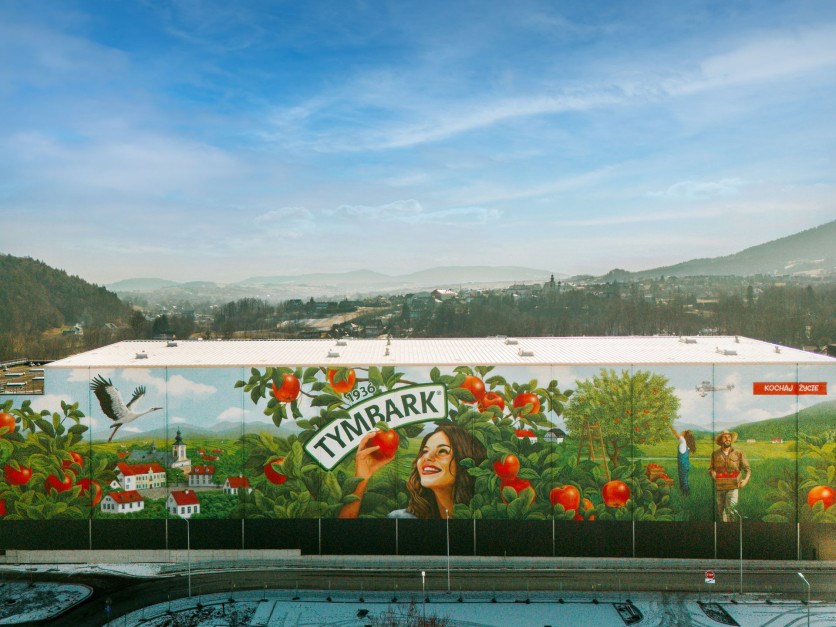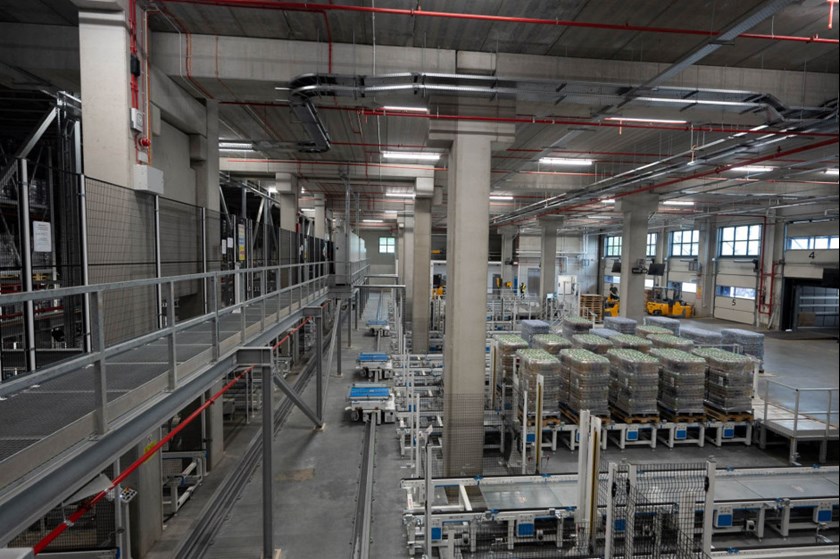Maspex is setting a new logistics standard. An investment that changes the rules of the game.
Maspex Group has completed one of the most important logistics investments in recent years – an automated high-bay warehouse in Tychy. This is not only an impressive engineering project but also a milestone in building modern, resilient, and sustainable supply chains.

Mural on the façade of the logistics center in Tymbark /Photo: Maspex Group
Maspex Group is one of the largest food companies in Central and Eastern Europe.
The company owns such brands as Tymbark, Kubuś, Lubella, Łowicz, Krakus, Caprio, and Plusssz. Present in over 60 countries, it employs more than 9,000 people and generates annual revenues exceeding PLN 14 billion.
Maspex has been investing for years in innovation, sustainable development, and the expansion of its production and logistics infrastructure, combining market ambitions with social responsibility.
A new definition of efficiency.
Maspex is setting a new logistics standard. An investment that changes the rules of the game.
Maspex Group has completed one of the most important logistics investments in recent years – an automated high-bay warehouse in Tychy. This is not only an impressive engineering project but also a milestone in building modern, resilient, and sustainable supply chains.
The warehouse accommodates 32,000 pallet spaces and is fully integrated with digital management systems (ERP and WMS). This allows it to handle up to 200,000 pallets per month, ensuring unprecedented levels of precision, speed, and process repeatability.
Automation covers both internal transport and real-time goods flow control.
Thanks to this investment, Maspex significantly shortens order fulfillment times, reduces errors, and enhances the operational resilience of its entire supply chain.

The new logistics center in Tymbark handles over 8,000 pallets daily. /Photo: DC/
A response to real industry challenges.
Rising operating costs, labor shortages, global supply instability, and ESG-related pressures mean that projects like the one in Tychy are setting a new logistics standard for the entire food industry.
"It was a necessary step to scale up our operations. For a long time, our logistics couldn't keep up with the pace of production growth. Order picking and shipping had to be carried out from other locations, which led to additional costs and delays," tells Krzysztof Pawiński, CEO of Maspex Group.
Sustainability embedded in strategy.
The Tychy project is not only a move towards automation – it’s also part of a long-term sustainability strategy. The technologies implemented enable energy consumption optimization and CO₂ emission reduction, as well as minimizing warehouse losses and limiting transport runs.
The facility is equipped with intelligent energy and lighting management systems, and its design helps reduce the carbon footprint throughout the entire product life cycle. This shows that the logistics of the future are also environmentally responsible logistics.
POLAGRA 2025 – conversations about the future of operations and logistics.
We are proud to announce that Maspex will be present as an exhibitor at POLAGRA 2025. For us, this is not only a sign of trust but also an opportunity to initiate a broader industry discussion about the operational and technological transformation taking place in the food sector.
We have no doubt that topics related to supply chain efficiency, automation, and new operational standards will be among the key issues at POLAGRA 2025.



